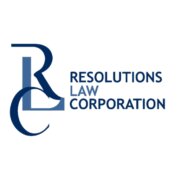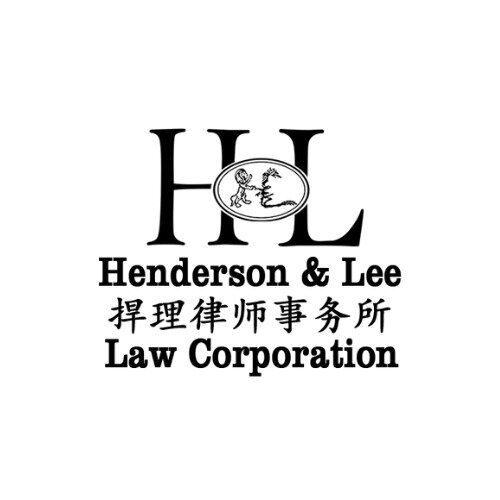Best Trusts Lawyers in Burnaby
Share your needs with us, get contacted by law firms.
Free. Takes 2 min.
List of the best lawyers in Burnaby, Canada
About Trusts Law in Burnaby, Canada
A trust is a legal arrangement in which one party, known as the settlor, transfers the legal title of an asset to another party, referred to as the trustee, to hold for the benefit of a third party, known as the beneficiary. In Burnaby, Canada, trusts are governed by a mix of federal and provincial laws. Trusts can be valuable tools for estate planning, managing assets, and reducing personal taxes.
Why You May Need a Lawyer
While trusts can be advantageous, they can be complex to manage and set up. Seeking legal advice is essential to ensure the precise structuring and managing of a trust. Situations that typically call for legal help include estate planning, avoiding probate process, reducing estate taxes, or income splitting. A lawyer can provide invaluable guidance and ensure legality and efficiency in these processes.
Local Laws Overview
Trusts in Burnaby are regulated by British Columbia’s Trustee Act and the federal Income Tax Act. These laws govern how a trust can be set up, how it must be managed, and how it is taxed. The provincial Trustee Act sets out the duties and powers of trustees, while the Income Tax Act addresses how trusts are taxed at the federal level.
Frequently Asked Questions
1. What are the different types of trusts in Burnaby?
There are several types of trusts in Burnaby including testamentary trusts, inter vivos trusts (living trusts), family trusts, and alter ego trusts. The type of trust appropriate for you depends on your needs and goals.
2. How are trusts taxed in Burnaby?
Trusts are considered separate taxable entities. The Income Tax Act determines the taxation of the trust’s income.
3. Can a trust be changed or revoked?
It depends on the type of trust. While revocable trusts can be modified or terminated by the trust client, irrevocable trusts largely can’t be changed once established.
4. Who can be a trustee?
Any competent adult can serve as a trustee. However, choosing a trust company like a bank can ensure expertise and neutrality in managing the trust.
5. What is the role of a trustee?
The trustee is responsible for managing the trust property in accordance with the trust terms and for the best interest of the beneficiaries.
6. How long can a trust last?
Under the rule against perpetuities in British Columbia law, no trust can last forever. It must be designed to terminate within a life in being at the creation of the trust, plus 80 years.
7. Can trust assets be claimed by creditors?
Creditors generally cannot claim trust assets. However, if the trust was established to defeat creditors, it could be set aside by a court.
8. What are the advantages of setting up a trust?
Benefits of setting up a trust include control over how assets are used and dispersed, potential tax benefits, and potential protection from creditors.
9. Can a trust own property?
Yes, a trust can own property. However, it is the trustee(s), not the beneficiaries, who hold legal title to trust property.
10. Is a lawyer necessary to set up a trust?
While not technically necessary, involving a lawyer in setting up a trust is highly recommended. Each trust is unique and proper legal guidance can ensure it’s set up correctly and efficiently.
Additional Resources
Several resources can be helpful when seeking legal advice about trusts in Burnaby. These include the Law Society of British Columbia, the Canadian Bar Association - BC Branch, and Burnaby Public Library's legal information services. The Government of Canada's website also offers valuable information about the management and taxation of trusts at a federal level.
Next Steps
If you need legal assistance in trusts in Burnaby, begin by contacting a local lawyer specializing in trusts law. They can provide tailored advice that suits your individual situation and needs. Prior to your consultation, gather all relevant financial documentation and identify your objectives for the trust. The more prepared you are, the more effectively a lawyer can assist you.
Lawzana helps you find the best lawyers and law firms in Burnaby through a curated and pre-screened list of qualified legal professionals. Our platform offers rankings and detailed profiles of attorneys and law firms, allowing you to compare based on practice areas, including Trusts, experience, and client feedback.
Each profile includes a description of the firm's areas of practice, client reviews, team members and partners, year of establishment, spoken languages, office locations, contact information, social media presence, and any published articles or resources. Most firms on our platform speak English and are experienced in both local and international legal matters.
Get a quote from top-rated law firms in Burnaby, Canada — quickly, securely, and without unnecessary hassle.
Disclaimer:
The information provided on this page is for general informational purposes only and does not constitute legal advice. While we strive to ensure the accuracy and relevance of the content, legal information may change over time, and interpretations of the law can vary. You should always consult with a qualified legal professional for advice specific to your situation.
We disclaim all liability for actions taken or not taken based on the content of this page. If you believe any information is incorrect or outdated, please contact us, and we will review and update it where appropriate.










